Use this pronouns PowerPoint presentation to teach your students about some of the most common types of pronouns.
Looking for a Pronouns PowerPoint?
In this teacher’s opinion, pronouns are one of the trickier parts of speech for our students to grasp. There are so many different kinds, for a start! It can be challenging to differentiate between personal and possessive, relative and reflexive, subjective and objective (plus others I haven’t mentioned here)!
This 22-slide teaching presentation has been created by our experienced teacher team to familiarise your students with some of the most commonly used pronoun types in the English language. The slides provide an overview of each pronoun type, list some examples of that pronoun type and demonstrate how the pronoun might be used in a model sentence. These three elements combine to help students understand how the pronoun functions in everyday speaking and writing.
This set of pronouns PowerPoint presentation addresses the following types of pronouns:
- Personal Pronouns
- Subject Pronouns
- Object Pronouns
- Possessive Pronouns
- Relative Pronouns
- Reflexive Pronouns
- Indefinite Pronouns
After each pronoun type is introduced, a “Show What You Know” slide allows students to demonstrate their understanding. The slideshow also includes a review quiz so you can make sure your students understand and can identify the different pronoun types.
This set of pronouns slideshow downloads in a Microsoft PowerPoint or Google Slides format. Be sure to use the file in slideshow mode, as the presentation does include some simple animations.
Extending This PowerPoint on Pronouns
This slide deck makes an excellent starting point when it comes to teaching your students about the most common types of pronouns. You may wish to cover the content over several lessons, choosing to focus on only one or two types of pronouns per lesson.
Looking for some activity ideas for your students to complete after they have engaged with this pronouns PowerPoint? Here are some suggestions you might like to consider:
- Pronoun Scavenger Hunt – Provide students with a short reading passage or allow them to select a book. Have them highlight or underline all the pronouns they can find in the text. Afterwards, they can categorise the pronouns according to the types presented in the slide deck.
- Listen for the Pronouns – An alternative version of the above. Read students a short story. Every time they hear a pronoun, they must stand up (or put up their hand). For an extra challenge, ask the students to identify the specific type of pronoun that was used in the text.
- Pronoun Paragraphs – In small groups, pairs or individually, have students write sentences or paragraphs containing a specific pronoun type from the slide deck. Have them highlight or underline all the pronouns they have used. This activity encourages collaboration and reinforces pronoun usage in writing.
Download This Set of Pronoun Slides
Use the dropdown menu on the Download button to access your preferred version of this resource. (Note: You will be prompted to make a copy of the Google Slides presentation before accessing it.)
Project the resource onto your screen and work through the slides as a class for a paperless lesson on pronouns!
This resource was created by Lindsey Phillips, a Teach Starter collaborator.
More Resources Targeting Pronouns
Looking for more resources to support your teaching of pronouns? Good news! Teach Starter has many more teacher-created, curriculum-aligned resources available!
[resource:5115956] [resource:5116676] [resource:5116017]
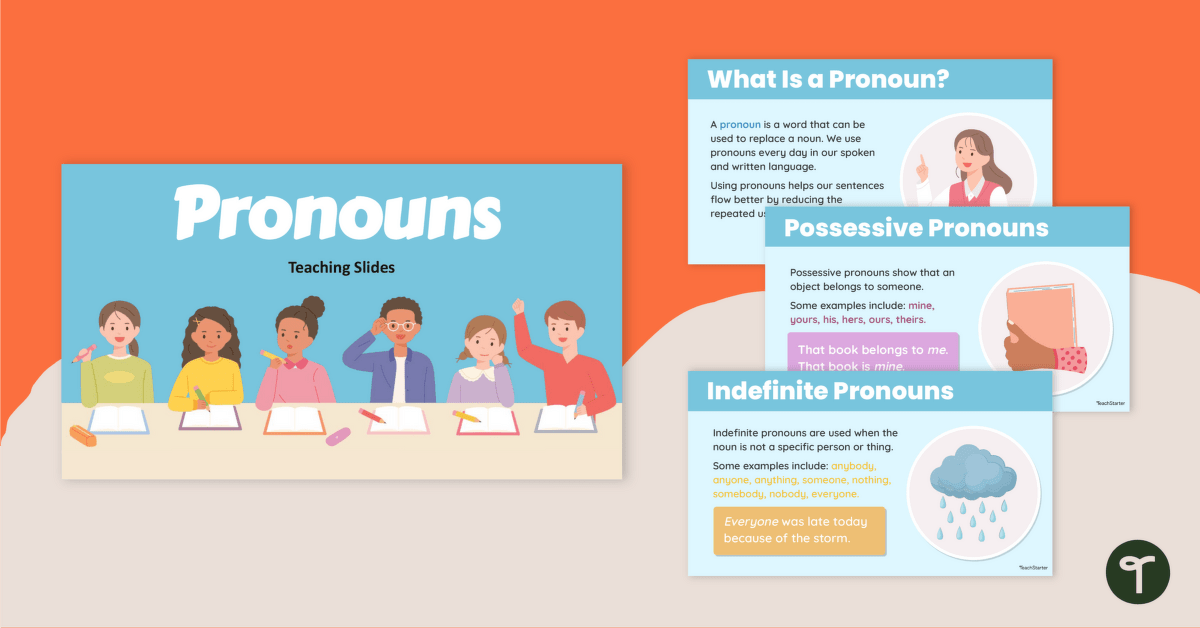

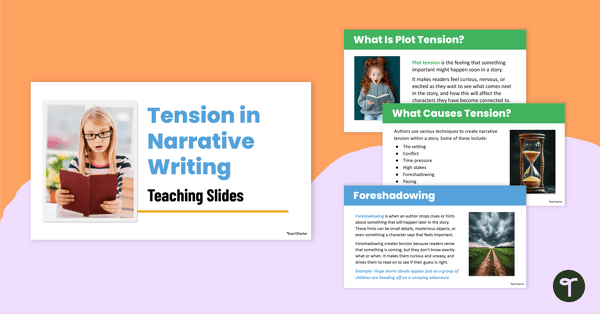
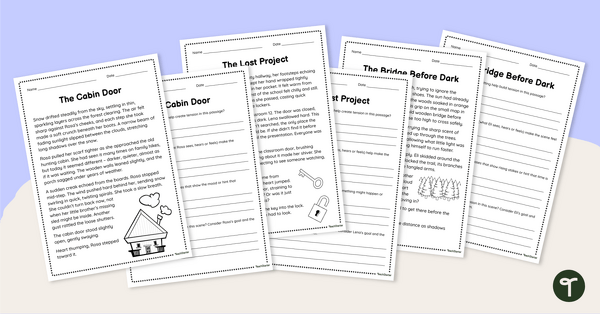
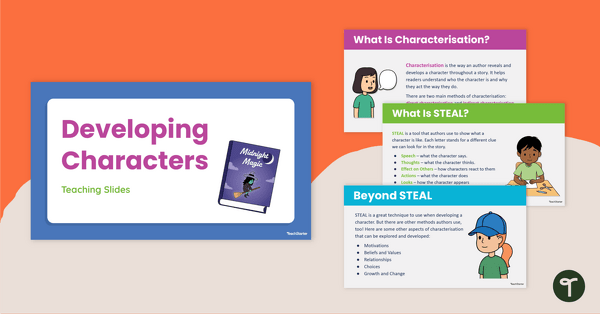
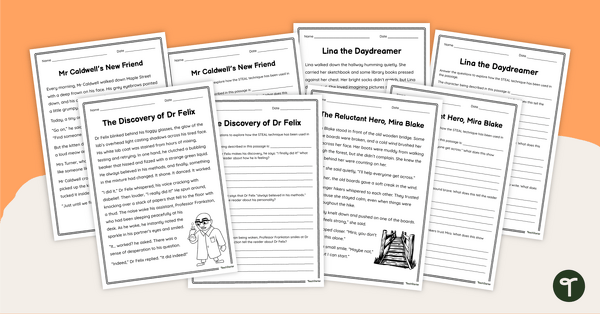
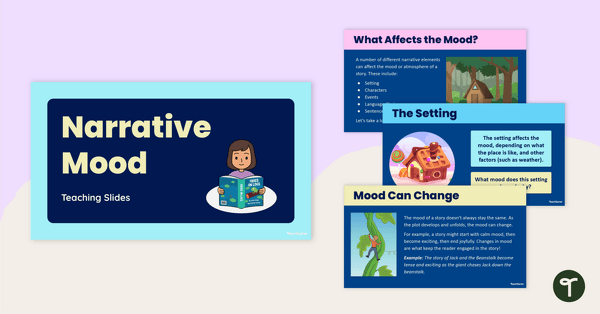
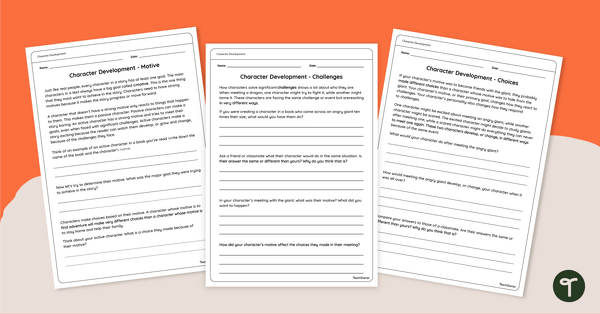
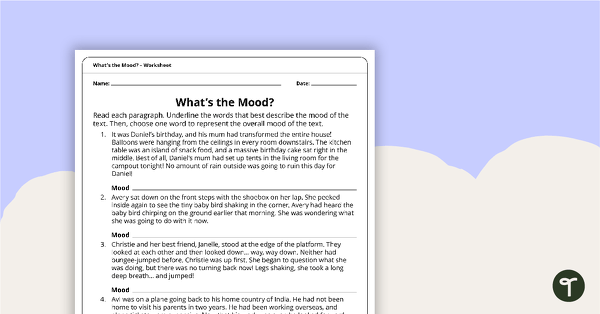
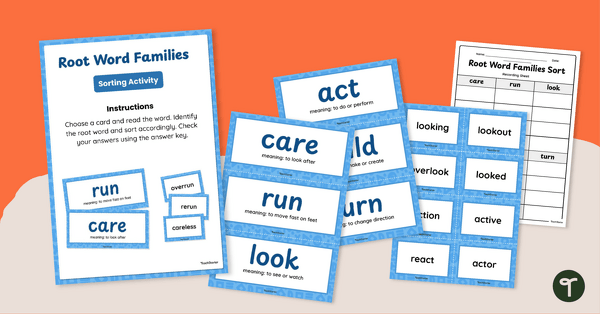
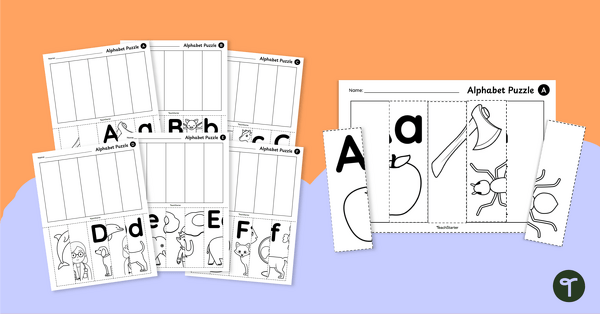
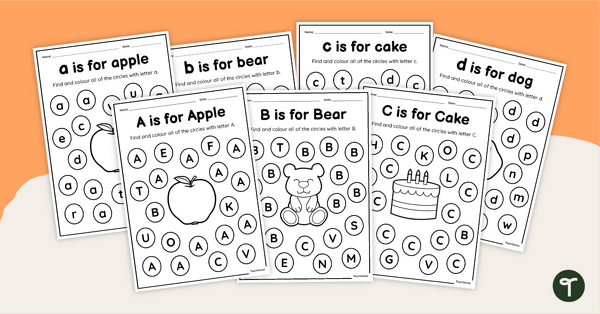
0 Comments
Write a review to help other teachers and parents like yourself. If you'd like to request a change to this resource, or report an error, select the corresponding tab above.